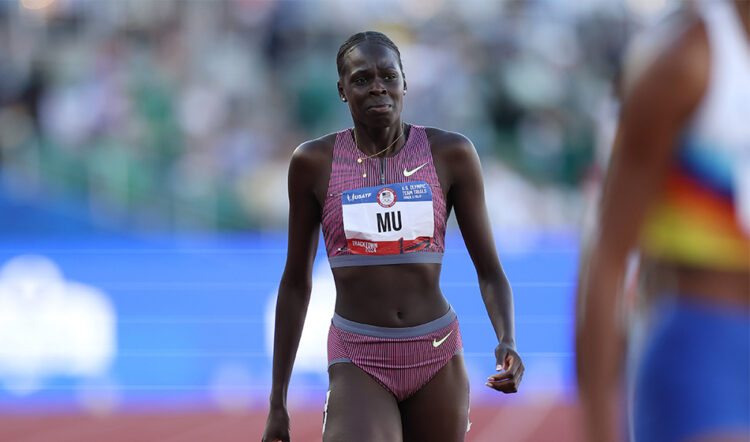American’s fall after 200m in US trials 800m would not have happened if the 1970s rules still applied
One of the biggest stories from the US Olympics Team Trials in Eugene doesn’t involve an athlete who has qualified for the Paris Games but instead someone who hasn’t made it.
After tripping in the women’s 800m final after 200m and jogging in last in 2:19.69, Athing Mu will be unable to defend her crown in the French capital in August. This is particularly significant for fans of British athletics, of course, given that Keely Hodgkinson will be trying to graduate from silver at the Tokyo Games to gold this summer.
Ironically, the winner of this year’s US trials, Nia Akins, tripped on Mu’s heels three years ago and fell in the same US Olympic trials 800m final. “Both then and now, what happened, just unfair,” Akins said. “It’s the sport – crazy and unpredictable.”
The Mu incident has brought 800m rules into the spotlight again. Currently at major events the athletes run the first 100m in lanes before breaking the stagger at the start of the back straight. In grassroots races around the world, though, the rules vary with runners often starting on a curved line before charging into the first bend.
Athing Mu (Getty)
One rule that operated in the mid-1970s, though, would have helped avoid Mu’s misfortune if it had been in place today. Back then, 800m runners had to run the first 300m in lanes before breaking at the start of the home straight approaching the bell.
The rule was employed at the 1976 Olympics in Montreal, with the races won by Alberto Juantorena of Cuba and Tatyana Kazankina of the Soviet Union. The 1974 Commonwealth Games also saw athletes run the first 300m in lanes with John Kipkurgat of Kenya and Charlene Rendina of Australia winning.
Maybe Mu and even many of her fellow competitors would enjoy the idea of running 300m in lanes. Among other things doing this would help runners enjoy a free and unimpeded run for much of the first lap. One thing’s for sure, though, Steve Ovett didn’t relish the rule in the 1970s.
Finishing fifth behind Juantorena in Montreal, Ovett insisted his chances of winning a medal were scuppered by the rule. Running ‘blind’ in lane eight, the Brit found himself with lots of ground to make up as the runners broke from their lanes.
He surged up to sixth at the bell but the effort drained him and he was almost a second behind Juantorena through 400m and struggled to make an impact in the…
CLICK HERE to Read the Full Original Article at AW…

